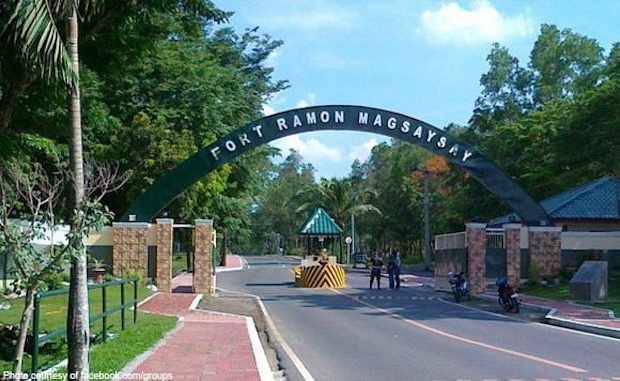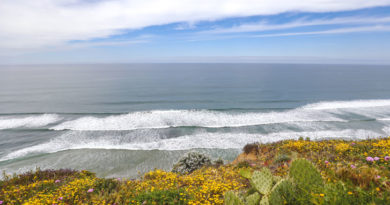HEADLINE | MANILA, Philippines — Joint maritime patrols by the Philippines and the US in the South China Sea to benefit fishermen – senators
.

MANILA, Philippines — Joint maritime patrols by the Philippines and the US in the South China Sea will greatly help in reducing encroachments by Chinese vessels as well as incidents of harassment against Filipino fishermen and other local vessels in the West Philippine Sea (WPS), senators said yesterday.
Senators Francis Escudero and Sherwin Gatchalian, in separate interviews with radio dwIZ, welcomed the announcement from Defense Secretary Carlito Galvez and his US counterpart Lloyd Austin III on the “restart” of joint patrols in response to growing regional security challenges.
Escudero said the planned joint patrols as well as the move to allow US access to more military bases in the Philippines under the 2014 Enhanced Defense Cooperation Agreement (EDCA) should not be cause for worry that they might trigger hostile reaction from Beijing.
“For me it’s clear that our ally, when it comes to security and military, is the US, and not China. While we have relations with China in terms of trade and other relations, we don’t have any military or security agreement with China,” Escudero said.
“For those saying we might anger China, I don’t believe that a government or country should make decisions based on fear or what other nations might think of us,” he said.
.
Gov’t asked: Bare terms on US use of PH camps

Fort Ramon Magsaysay in Nueva Ecija is the largest military reservation in the Philippines. (Photo from the Facebook page of the Philippine Army)
.

MANILA, Philippines — Bagong Alyansang Makabayan (Bayan) on Saturday demanded public disclosure of the terms in which four more Philippine military bases would be used by US forces under the Enhanced Defense Cooperation Agreement (Edca) between Manila and Washington.
The four military bases, which were not identified in a joint Philippines-US announcement on Thursday, are in addition to five current “agreed locations” — Basa Air Base in Pampanga, Fort Magsaysay in Nueva Ecija, Lumbia Air Base in Cagayan de Oro, Antonio Bautista Air Base in Palawan and Mactan-Benito Ebuen Air Base in Cebu.
Read more: https://newsinfo.inquirer.net/1725420/govt-asked-bare-terms-on-us-use-of-ph-camps
He said the US has been the Philippines’ security ally since the late 1940s “so there is no reason not to continue that and what the President saw as in the interest of our country, being the chief architect of our foreign policy.”
He said President Marcos has a mandate to execute foreign policy, which is why the only participation of the Senate on treaties and agreements is to affirm or reject them.
The senator stressed that joint patrols would help reduce encroachments and acts of harassment in the area.
“Let’s remember it’s not in the interest of any country to start a war or trouble, but want to avoid them…but if in the process of avoiding war will mean more freedom for our fishermen to fish in our seas, why not? Why should we allow the Chinese coast guards or Navy ships to drive away our fishermen from seas that is ours in the first place?” Escudero said.
Gatchalian said joint patrols and other cooperative military activities with the US would enhance military interoperability between the two countries.
“And this is not only about combat, one huge aspect is disaster preparedness. Our country is often hit by disasters and we all know the US is well equipped for such situations,” he said.
Regular presence of the US in the South China Sea is also important for stability as it would help improve the balance of power in the region.
“It’s important that we have an ally to balance a power like China, with which we have issues on harassment incidents in the WPS,” Gatchalian said.
Deterrence
Former foreign affairs chief Albert del Rosario also welcomed the renewed and strengthened alliance between the Philippines and the US as announced by Galvez and Austin.
“We highly welcome yesterday’s news where the Philippines and the US reached strategic agreements which enhance our longstanding alliance and particularly improve the Philippines’ deterrent capacity against unlawful incursions in its national territory,” Del Rosario, now chair of think-tank Stratbase ADR Institute, said.
“To begin with, based on survey results, Filipino preference for the US is over 90 percent whereas preference for China is 20 percent. Moreover, a majority of Filipinos are in favor of the building of a credible defense posture against unlawful incursions in their national territory,” Del Rosario said in a statement.
He also recommended bringing to the United Nations General Assembly the country’s legal victory against China in the Permanent Court of Arbitration in The Hague, which voided the Asian giant’s massive claim in the South China Sea and reaffirmed the Philippines’ own maritime entitlements.
“It behooves us to bring our overwhelming Arbitral victory to the UN General Assembly. When I had asked a very senior diplomat why we had not successfully done this, the response was that over time they observed that our issue had lost support. Since there was no support from the last administration to begin with, why help a country which refuses to be helped?”
Del Rosario also said joint patrols in the West Philippine Sea would protect Filipino fishermen and support efforts of Filipinos to develop the country’s energy resources.
He also welcomed the addition of four new sites where US forces can operate on rotational basis under EDCA, saying the development is in the interest of both the Philippines and the US.
“In this context, we note the clarification made by former US Secretary of State Michael Pompeo, former US Ambassador Sung Kim and the present Secretary of State Antony Blinken that, under the Philippine-US Mutual Defense Treaty, the US is committed to back the Philippines in the event of a Chinese armed attack against Philippine armed forces, public vessels or aircraft which are rightfully stationed or transiting in the South China Sea, including the West Philippine Sea,” Del Rosario said.
Del Rosario said the government should look at the possibility of revisiting other approaches such as operational leases for newer military assets, which are cheaper but effective nonetheless.
“Since its independence, India has developed very effective ballistic missiles including BrahMos. As we had previously said, we are opposed to war – as we should be. But if threatened by the use of force, we should be ready to inflict, at the very least, a bloody nose on any attacker who is out to harm us. We believe that the BrahMos missiles for the Philippines will significantly improve our deterrent capacity against unlawful incursions in our territory,” he explained.
“We are very grateful for all these constructive developments and we hope that all these will advance peace and stability in the region to protect the rules-based international order,” Del Rosario said.
Bare details
Meanwhile, the militant Bagong Alyansang Makabayan (Bayan) yesterday urged the government to disclose the terms of use for the nine sites that would be used by the US military under EDCA.
“The EDCA allows the US the use of facilities rent-free. They are also given tax exemptions in using utilities and Phl gov’t will pay the taxes. They can also use our radio frequencies for free. Why did the Philippine government allow these perks?” Bayan secretary-general Renato Reyes Jr. said on Twitter.
“The Philippines has no say what goes in and out of these agreed locations. US will have ‘unimpeded access to agreed locations for all matters related to prepositioning and storage of defense equipment.’ Prepositioned equipment shall be for ‘exclusive use’ of US forces,” he added.
Under EDCA, Reyes said the Philippine facilities would be under the operational control of the US. He noted that same privileges are also given to private military contractors tapped by the US military.
“There is no ‘joint control’ in EDCA. Such is a myth as the US facilities will remain under the exclusive control of the US forces, and Filipinos will be reduced to providing perimeter security for a foreign army. This is again an affront to our sovereignty,” he added.
There are five previously announced sites in Pampanga, Nueva Ecija, Cagayan de Oro, Cebu and Palawan. The four additional sites have yet to be announced.
“The addition of these new EDCA locations will allow more rapid support for humanitarian and climate-related disasters in the Philippines, and respond to other shared challenges,” read the joint statement of Galvez and Austin.
“The EDCA is a key pillar of the US-Philippines alliance, which supports combined training, exercises and interoperability between our forces. Expansion of the EDCA will make our alliance stronger and more resilient and will accelerate the modernization of our combined military capabilities,” the statement read. – Michael Punongbayan, Janvic Mateo


 Memento Maxima Digital Marketing
Memento Maxima Digital Marketing Ads by: Memento Maxima Digital Marketing
Ads by: Memento Maxima Digital Marketing






